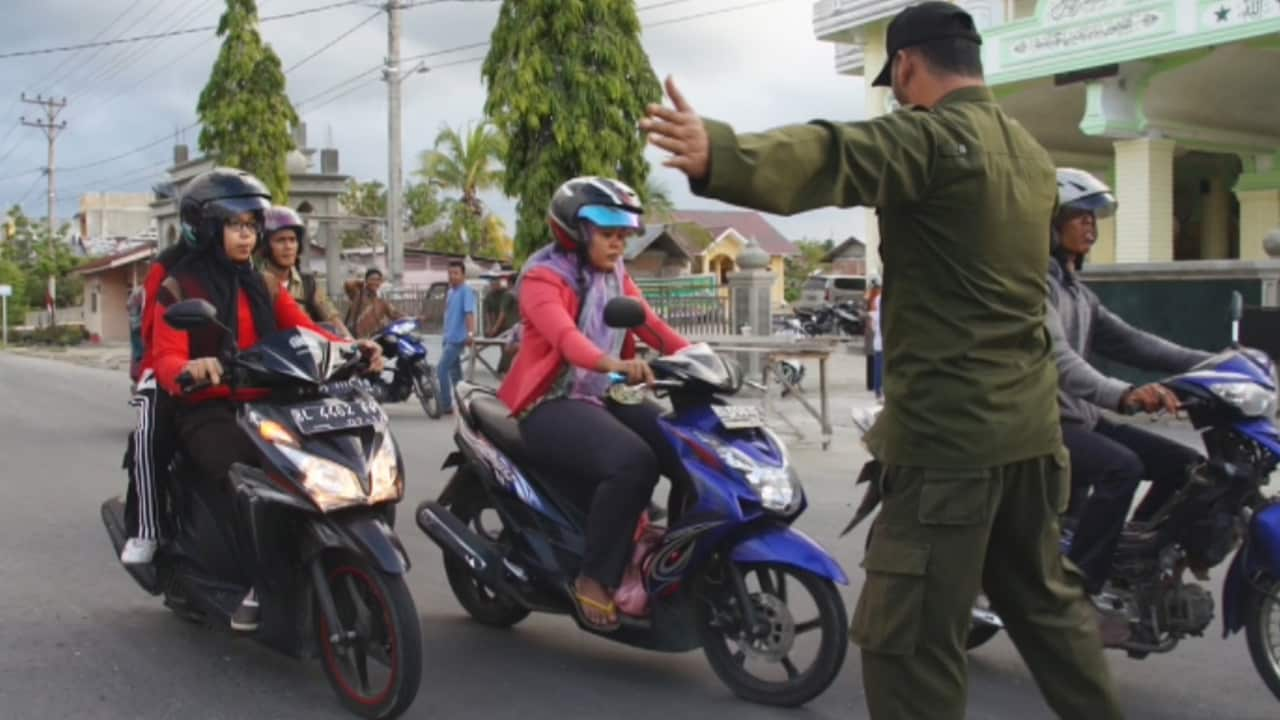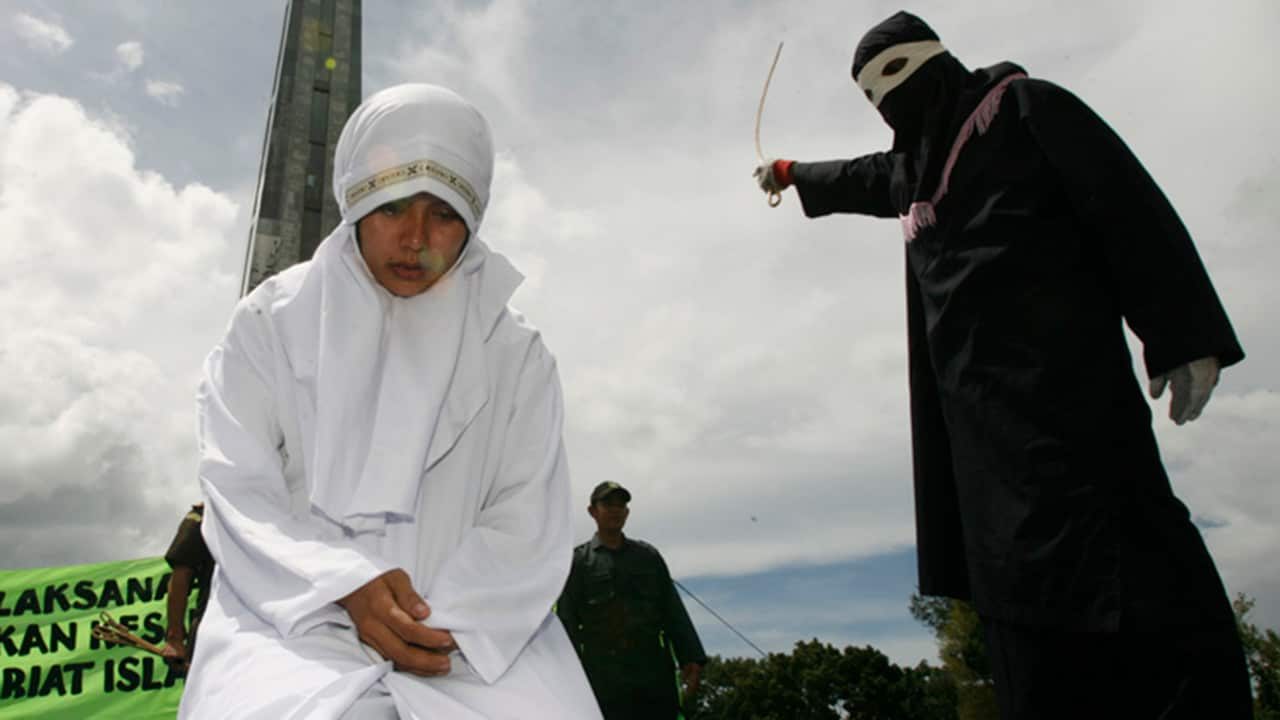Earlier this year international outrage was sparked after a horrific story of gang rape in the town of Langsa in the Indonesian province of Aceh emerged.
A group of men raided a woman’s home and found a 25-year-old woman with a married man.
Accusing them of adultery, the vigilantes, one of whom was a 13-year-old boy, gang-raped the woman, dousing her and the man with sewage before marching them to the sharia police.
Despite what happened and the trauma of gang-rape, the sharia police in Langsa insisted the woman would be caned for alleged adultery.
That story never left my mind.
Securing access to meet sharia police chief, Ibrahim Latif, I found myself in Langsa soon after.
For the first time, Captain Latif allowed cameras to follow him and his sharia squad out on patrol for a report for .
“I have a responsibility to God. It’s my job to encourage good and prevent wrong,” he explains to me.

The female sharia officers interrogated the women about their clothing.
The most senior wanted to make certain I was clear that it is women’s responsibility to prevent what she described as ‘crime’.
“Women who wear tight clothes are inviting bad things to happen to them, such as rape,” she told me. “If a man doesn’t see anything he won’t feel lust. Women invite it. Their curves arouse men’s lust.”
In addition to strict Islamic dress regulations and harsh penalties for adultery, living with sharia law in Aceh – whether Muslim or not – also demands no alcohol, no gambling and no homosexuality.

Caning is common – in extreme cases those considered guilty could recieve up to 100 lashes. Some crimes come with a prison term of more than three years. Others escape physical harm and instead pay a fine of up to 800 grams of gold.
New laws passed just weeks ago already provide harsher penalties. But punishments are set to get even worse under Captain Latif’s rule.
He's pushing for more religious by-laws with deadly consequences.
“If it’s proven that someone is a thief, they could have a hand cut off. If someone commits murder, they will be killed... an eye for an eye,” he tells me.

After being given unprecedented access to go on patrol with his morality squad for the afternoon, I assumed we were on good terms.
From the outset I was under the impression that the rapport myself and my fixer/translator had worked to build with him was paying off.
He allowed us to enter his home where I interviewed him. He took us inside police headquarters.
But after being in Langsa for less than 24 hours and capturing rare glimpses of some of what I've described here, there were reports Captain Latif and his followers suddenly turned on us.
We were in an unpredictable situation.
Instead of accompanying his sharia police team on a late night raid as planned, we found ourselves reluctantly fleeing. We were advised word had spread that we were here to ‘shame’ Islam.
Warned by a tip-off that it was too dangerous to stay, we had no choice but to leave Aceh immediately.
The next morning, the local paper headline read: ‘Australian Journalists Monitoring Sharia Law’.

Although devout Muslims, many people in Aceh, particularly women, say the issue here is the heavy handed enforcement.
Human Rights Watch says Islamic laws enacted in the province violate basic rights. They’re urging the Indonesian government to revoke the implementation of sharia in Aceh.
People like Ibrahim should be investigated. There are many men like him all over Indonesia,” Andreas Harsono from Human Rights Watch tells me.
“This is not an isolated case. They are abusing their power and this is very dangerous.”









